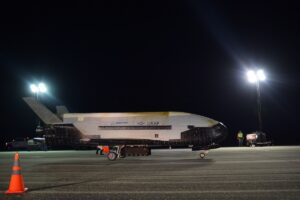
The seventh mission of the Boeing [BA] X-37B Orbital Test Vehicle is, like the sixth mission, to include a service module attached to the spaceplane's back end--a module that permits the carriage of more experimental payloads, Randall Walden, the director of the U.S. Air Force's Rapid Capabilities Office, said on March 4. "It's been a heavy lifter of doing experimentation in space for a lot of modernization activities for space," Walden said of the X-37B during the Air Force Association…











